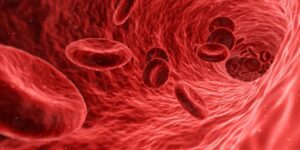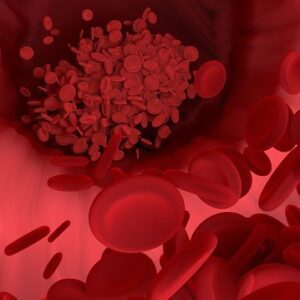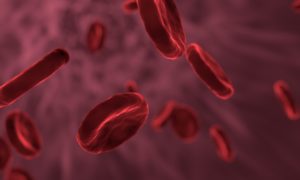Hemophilia A
What is hemophilia A?
Hemophilia A (also known as factor VIII deficiency or classic hemophilia) is an inherited genetic bleeding disorder caused by a lack of or defective clotting protein known as factor VIII (FVIII). Individuals with hemophilia A do not clot efficiently and experienced excessive and prolonged bleeding. Hemophilia A is mainly present in males. Females with hemophilia A are rare. It is estimated that hemophilia A occurs in approximately 1 in 5,000 births. There is estimated to be 20,000 people with hemophilia A in the U.S.
What are the symptoms of hemophilia A?
The severity of hemophilia A symptoms varies. Sixty percent of those with hemophilia A have severe:
- Bruising
- Bleeding the digestive and urinary tract
- Nose bleeds
- Bleeding after cuts, trauma, dental work and surgery
- Bleeding in joints with associated pain and swelling
- In females, menstruation and bleeding after child birth
What causes hemophilia A?
Hemophilia A is an inherited recessive trait carried on the X chromosome of a parent. Females have two X chromosomes and males have one X chromosome and one Y chromosome. Females inherited one X chromosome from their mother and one from their father. Males inherit one X chromosome from their mother and Y chromosome from their father. With this being said, fathers cannot pass hemophilia A to their sons. A son born to a mother that carries the recessive hemophilia trait will have hemophilia. Daughters rarely inherit hemophilia A because if they receive the trait from their mother, the X chromosome from their father will more than likely not carry the trait and be able to provide effective FVIII. Females usually present as carriers of Hemophilia A.
What are the treatment options for hemophilia A?
Treatment for hemophilia A includes the administration of concentrated FVIII. This FVII is either derived from human provided or donated blood product or lab-derived factor known as recombinant FVIII. The use of recombinant FVII is preferred because it is considered safer. Patient with severe hemophilia A may receive FVIII routinely to prevent excessive bleeding episodes. FVIII is given in intravenous (IV) form. DDAVP (Desmopressin Acetate) is given to stop bleeding. This can be given through an IV or in the form of a nasal spray. Another option is the bi-specific antibody emicizumab (Hemlibra), taken to prevent bleeds.
Genetic counseling is also sometimes recommended to identify women and girls that carry the gene.
Where can I find more information about hemophilia A?
Hemophilia A Articles

Six-Year-Old with Hemophilia A Creates Comic Book to Educate Others

First-Ever Gene Therapy for Severe Hemophilia A Gains FDA Approval

Experimental Therapy for Hemophilia Meets Phase 3 Trial Endpoints



Emicizumab is an Effective Prophylaxis for Hemophilia A, Study Shows

Rare Community Profiles: Diagnosed Before Birth: How the Sweatman Family Manages Their Son’s Hemophilia A







